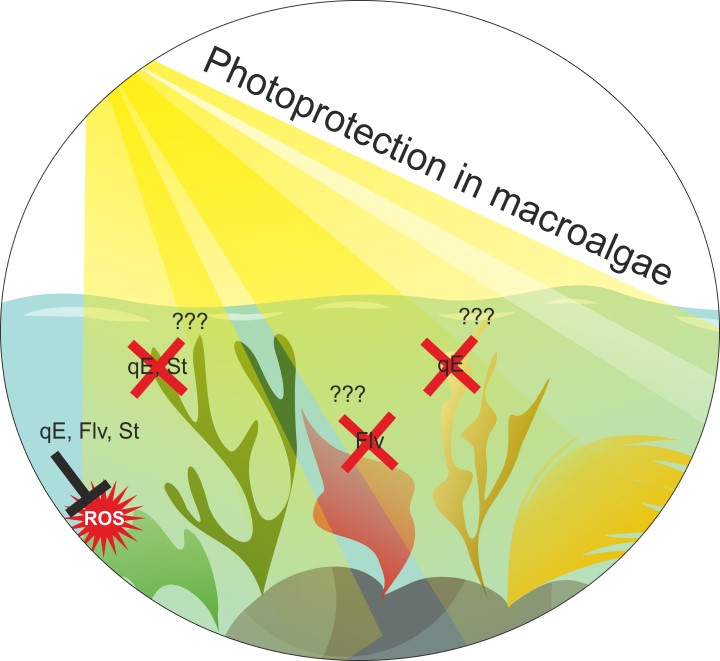
Elysia viridis spawning an egg mass on the macroalga Codium tomentosum. Photosynthesis by long-term functional kleptoplasts can support the reproductive output of the host slug.
Elysia viridis spawning an egg mass on the macroalga Codium tomentosum. Photosynthesis by long-term functional kleptoplasts can support the reproductive output of the host slug.
MP2Lab research team studies the unique interactions of light with the photosynthetic systems of marine organisms, from micro and macroalgae to photosynthetic sea slugs. MP2Lab is part of the Centre for Environmental and Marine Studies – CESAM, and is located at ECOMARE, the Laboratory for Innovation and Sustainability of Marine Biological Resources of the University of Aveiro.
KleptoSlug project will try to unravel the cellular mechanisms supporting the sequestration and maintenance of functional chloroplasts inside metazoan cells and determine the host benefits of harboring kleptoplasts.


This project has received funding from the European Research Council (ERC) under the European Union’s Horizon 2020 research and innovation programme (grant agreement no. 949880).
If you require any information about us or are motivated to work on marine photophysiology of algae and photosynthetic sea slugs write an email to sonia.cruz@ua.pt or pcartaxana@ua.pt.